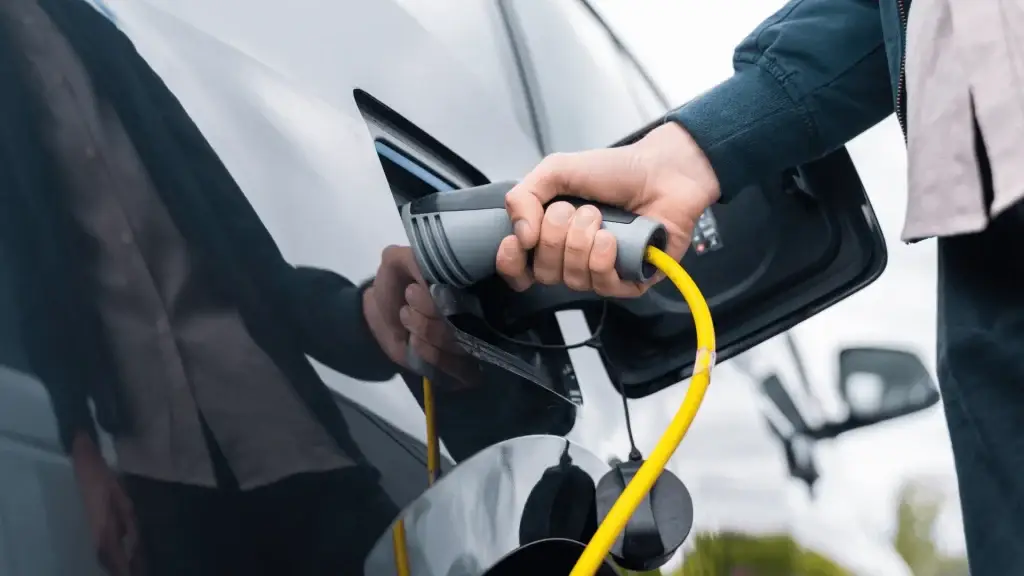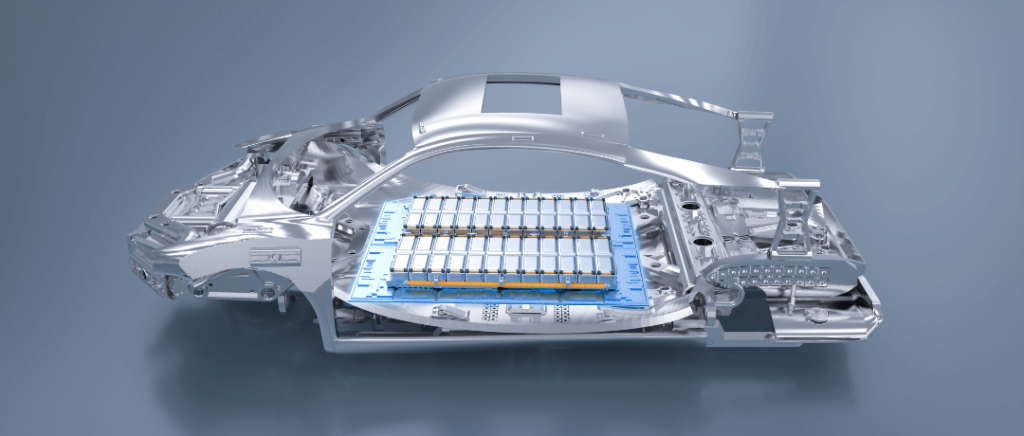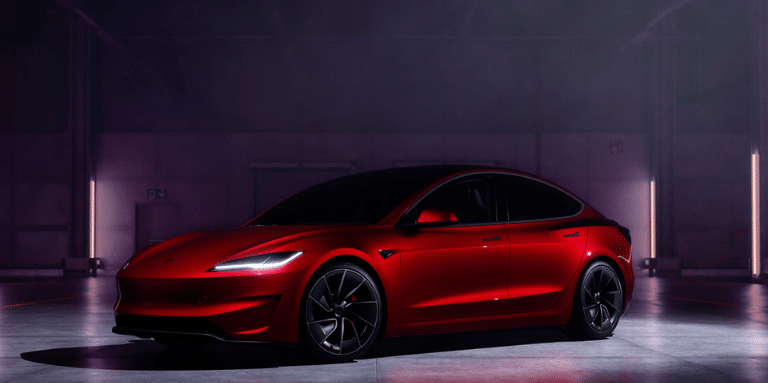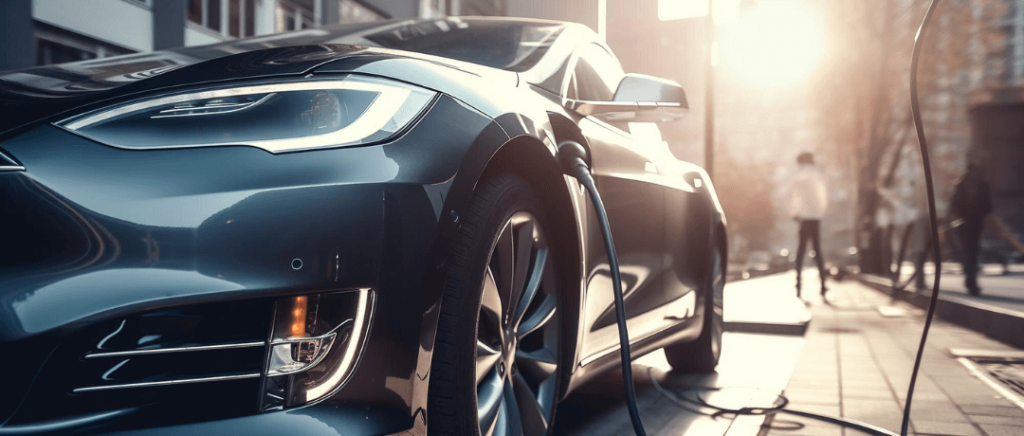What is an electric car battery?
The battery pack of an electric car is the element containing the cells that make up the battery. In most cases, depending on the type of electric vehicle, batteries are made from raw materials such as :
- Lead
- Sodium
- Nickel metal hybrid
- Lithium-ion
On this last point, lithium-ion batteries are mostly used in electric vehicles. This technology can also be found in laptops, telephones and household appliances.
Lithium-ion is used in electric vehicles for several reasons:
- has a large energy storage capacity,
- the lithium-ion battery does not suffer from memory effect, i.e. you don't have to wait until the battery is completely discharged to charge it,
- the lithium-ion batteries batteries are low-maintenance and highly recyclable.
For an electric car to provide a good range, the battery must have a fairly large capacity, around 50 kWh. This energy capacity is reflected in the battery's weight and size.
For more information on this subject, a special article is dedicated to weight of electric car batteries. Don't hesitate to consult it.
How can I save my electric vehicle's battery?
It's true that over time, the ageing of your electric vehicle's battery electric vehicle will lose some of its capacity. But with a few of the tips we've listed, you can extend your vehicle's range.
In fact, electric car battery manufacturers estimate that a battery lasts an average of 10 to 20 years before it has to be recycled or replaced.
Paying attention to electric car equipment
In addition to powering the vehicle's engine, the battery also enables the car's on-board electrical equipment to operate. In fact, the various items of equipment, in particular the heating/air-conditioning system, have a direct impact on the battery, with around 5% to 10% loss of range.
It is therefore advisable to use them sparingly, so as not to overstretch the battery.
Speaking of air-conditioning, when you're out and about in the city, open the windows before using the air-conditioning system to preserve your autonomy. On the freeway, however, the situation is reversed.
Good to know: adjusting the air-conditioning correctly will help avoid excessive consumption. For the sake of your health and the vehicle's range, it should be set between 5 and 7 degrees below the outside temperature.
Make sure your electric vehicle is recharged
As we mentioned earlier, most electric vehicles are equipped with lithium-ion batteries. What's particularly advantageous about this battery is that it doesn't suffer from memory effect. This means that whatever the battery's charge level, it can always be recharged at any time.
The memory effect is when the battery's performance weakens after a succession of partial overcharges. When this happens, the battery memorizes the recharge threshold and therefore fails to deliver the charging capacity. This causes the battery to switch off, despite the energy available in the battery.
On other electric vehicles, the memory effect has more impact on Nickel-Cadmium batteries, where the energy capacity of the batteries can be reduced or even eliminated by the memory effect.
When you recharge your electric vehicleWhen recharging your electric vehicle, we advise you to stay within a range of between 10% and 80% for daily use, to maintain the chemical structure of the cells in your vehicle's battery and keep it in good health. To stay within this range, you can program it by selecting the charge level in several ways:
- directly to your charging station
- through a mobile application such as myWallbox with the Wallbox
Read also: how to recharge your electric car?
Using the regenerative brake
If you have an electric car, you've probably heard of the regenerative brake. This feature is unique to electric and hybrid vehicles. The regenerative brake is a system that enables the vehicle to recover energy during deceleration. This not only saves on braking, but also enables the battery to regenerate energy automatically. So, when you want to slow down, we advise you to use the brake pedal less, to limit brake pad wear and extend your range. This encourages you to adopt a less sporty driving style, and helps protect your vehicle.
Tip: if you're going on a long journey with a loaded vehicle, you can slightly over-inflate your tires by 0.1 to 0.2 bar. The freeway requires a high rolling speed, with a good road surface and rather wide curves. Slightly overinflating your tires will reduce the contact patch with the road, and therefore your vehicle's fuel consumption. However, this trick should be avoided in poor road conditions or when it's raining.
Adopt eco-driving
Whether for an electric or internal combustion vehicle, eco-driving is one of the best ways to reduce fuel consumption and extend the life of a clean vehicle. life of a clean vehicle.
Most of the time, many events and emotions can influence driving. The more nervous you are, the more energy you consume.
To avoid this, it will be useful to adopt a smoother driving style:
- Soft start: when you start off, it's in the first few kilometers that your vehicle consumes the most energy.
- Use the regenerative brake rather than the brake pedal. This will enable you to anticipate slow-downs in traffic jams, for example. What's more, in addition to the regenerative brake, the motor stops automatically when the electric car is at a standstill. In such situations, you don't have to worry about energy consumption. The electric car takes care of that.
- Eliminate unnecessary charging of your electric vehicle. The more your vehicle is charged, the more energy is consumed. If you're going on vacation, use roof boxes instead of roof racks. After using them, remember to remove them, otherwise you'll consume 10-15% more energy.
- Reduce speed by at least 10 km/h: by reducing your speed, you reduce the energy needed to propel the vehicle. This saves up to 10% on fuel consumption and extends the vehicle's range.
- Make sure your vehicle is in good condition: making sure your vehicle is in good condition is one of the key principles for the smooth operation of your electric vehicle.
- Plan your journey in advance: planning your journey will save you many detours and wasted energy. Also, by being located via the Chargemapplatform, it will help you locate nearby recharging points available on your itinerary.
What's more, with a smoother ride, you improve the comfort of yourself, your passengers and other motorists. So driving becomes much more enjoyable.
Use your electric car regularly
To maintain the health of the electric battery, some drivers might think that the best solution would be to limit the use of their vehicle. However, when an electric car is left unused for long periods, such as a month, this can accelerate battery degradation and fatigue.
That's why it's so important to have a car on the road regularly. If your vehicle is used at least once a week, even for short journeys, that's already a good thing.
Good to know: if your electric car is immobilized, we recommend that you protect it from high temperatures and direct sunlight wherever possible. Also remember to protect your vehicle in winter, to keep the battery at an average temperature and a charge level of around 60%. Leave it unplugged, to preserve the health of your battery pack.
Using your electric vehicle's "eco" mode
Most electric cars are equipped with an "eco" mode, such as the Renault Zoe or the Peugeot e-208. This driving mode saves energy by reducing engine power. This driving mode is ideal for short journeys, in town for example, where the ride will be much smoother and more fluid.
What's the point of saving an electric car's battery?
Saving your electric vehicle's battery saves you money in a number of ways:
- Economic benefits: This first point is undoubtedly the most obvious. When you adopt these driving habits, you won't need to recharge your vehicle all the time, and you'll reduce your energy bill. What's more, by driving more ecologically, you'll preserve the components and parts of your electric vehicle for longer. That means lower maintenance costs.
- Ecological advantage: when you adopt eco-driving and take good care of your vehicle, you considerably reduce your energy consumption on every trip.
In conclusion
With these various elements, you'll be able to take good care of your battery, and save money and energy. Because, yes, taking care of your vehicle will, on the one hand, reduce your visits to the garage and, on the other, extend the life of your battery. What's more, these practices enable you to adopt what's known as eco-driving. This reduces energy consumption and prolongs battery life, while respecting the environment by limiting CO2 emissions.





